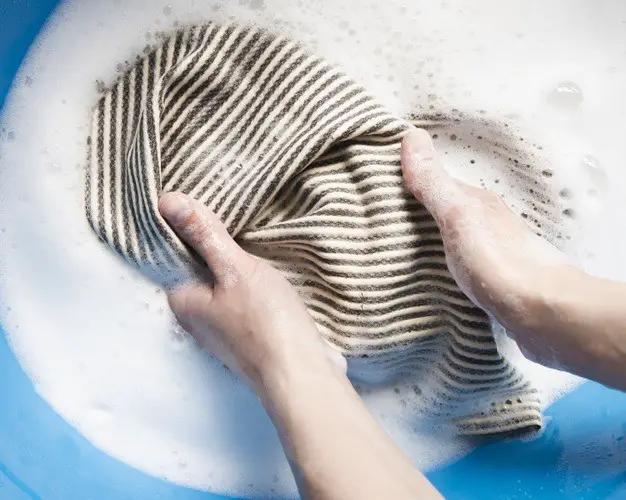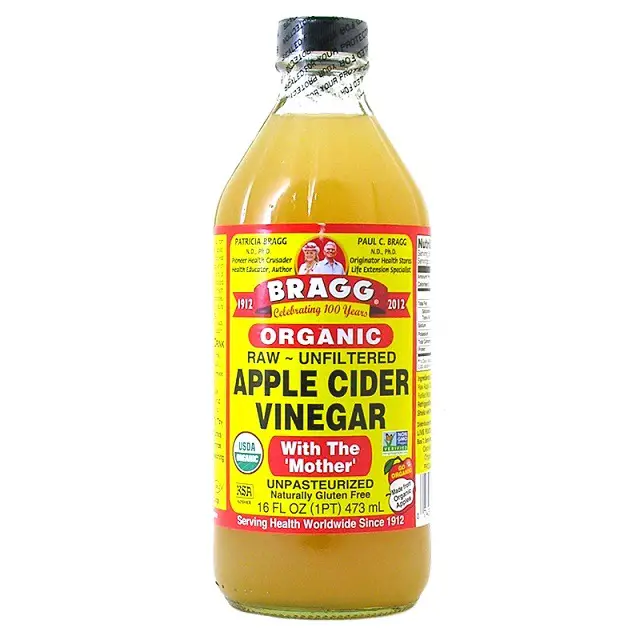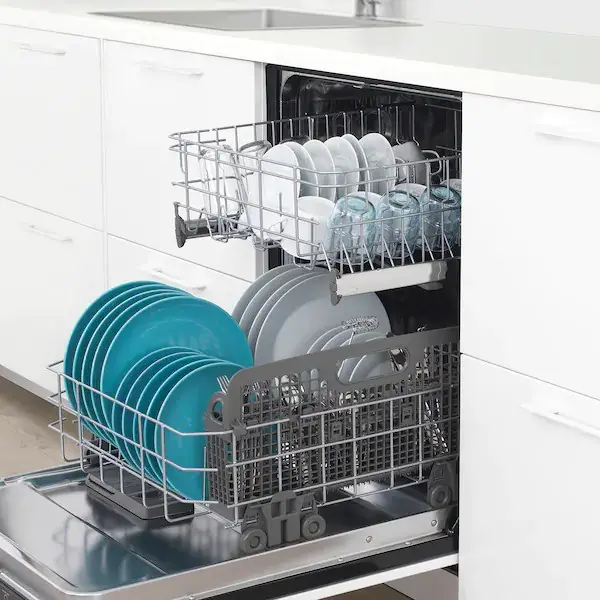How to Ensure a Fresh Smelling Kitchen All Year Round
The kitchen is the focal point of a home; however, it can also be the cause of nasty smells lingering in your home especially because it hosts many perishable food items.
The source of the bad kitchen smells could be from burnt food, trash or spoiled milk or food or even rotting groceries.
In addition, there are spices, dirty pots and dishes causing a mess on the scent in the air and it’s a hard task getting rid of these smells.
Some of the unpleasant smells in your kitchen originate from areas you cannot or do not see regularly.
Tracking smells from an unknown source can be a frustrating and time-consuming process.
Ways to ensure a fresh smelling kitchen
Here are some easy ways to ensure you always have a fresh smelling kitchen:
1. Washing the sponges and kitchen clothes frequently

Don’t use the same dish rag or sponge for over a week to prevent mildew. Also, make sure you rinse them out well and allow them to dry after every use.
You should be particularly careful when washing dish rags or sponges that have been used to wipe off dairy products like milk.
If not thoroughly washed and rinsed, the fermented milk is likely to leave a strong sour smell in your sponges which spreads generously in your kitchen.
2. Taking inventory in the cupboards and pantry
This will ensure you do not have rotting onions, potatoes or other foods gone bad. These are things that are usually forgotten as they are kept hidden and out of view.
These left overs are usually discovered when it is too late; this is after the foul smell of rotting produce alerts you that something is amiss.
Applying the proactive approach of taking inventory as opposed to the reactive approach of dealing with smells after the fact will ensure your kitchen always smells fresh.
3. Double bag
Using a double bag in your trash cans is one of the best ways to keep the kitchen trash from smelling.
Even the sophisticated kitchen trash cans that have odor-neutralizing bags and lids cannot keep the odor of decomposing organic waste fully under control.
If you are disposing of something that already stinks, there’s the likelihood that the stench will worsen with time.
You should certainly double bag things such as meat to help in containing the odors and juices.
4. Taking out the trash
This sounds obvious but it happens very frequently that the kitchen trash goes un-emptied overnight or for several days.
Can you picture coming back home from a vacation or a long day to a foul smell coming from the kitchen trash can?
Typically, the un-emptied trash can is the cause of the odor. Try to empty your trash at least twice a day or at minimum, at the end of the day.
Do not let your trash can stay with trash overnight as the simmering smell is an annoyance in the morning.
5. Cleaning the trash can frequently
At least once every week or fortnightly, you need to take the kitchen trash can outdoors and fill it with water and your preferred cleaner and swish it around.
After that, use a brush for scrubbing around the bottom edges where small pieces of organic food waste, juices and grease coagulate or build up.
Depending on the kind of trash that you have disposed in your trash can, you may need to thoroughly wash your trash can more than once a week.
This may be the case where trash bags end up leaking and liquids from fruits, vegetables or meat products leak directly into the trash can.
6. Wash the dishes
Not washing the dishes will create a lot of mess in your kitchen. After you finish cleaning the dishes, clean the sink with a sponge or rag.
Dried grease, dairy and other food liquids will cause nasty smells to emanate from the pipes of your sink.
Try and maintain a clean sink by washing the dishes after every meal and pouring a generous amount of warm or hot water down the drain to rinse out any food remains.
At minimum, try and ensure that dinner dishes do not stay overnight in the sink. In addition to causing foul smells, dirty dishes provide a good meal for pests such as cockroaches.
7. Baking soda
Now and then, sprinkle a bit of baking soda in the bottom of the trash can to absorb some of the odors.
Baking soda is an affordable and powerful natural cleaner that can be used for cleaning various items.
8. Cleaning out the refrigerator regularly
A smelly refrigerator will cause you to have a smelly kitchen each time you open that fridge door. Most people open their refrigerator door a couple of times a day, so that nasty smell cannot be ignored.
One of the easiest and fastest ways of keeping the kitchen smelling great is getting rid of old, expired food from the refrigerator. After getting rid of the smelly food, give your refrigerator a good clean.
Doing a weekly inventory of the food in your fridge and getting rid of the ones that have expired is a good way to avoid a smelly fridge.
Also, if you know you are unlikely to eat some of the left-over food in your fridge, get rid of it before it goes bad.
9. A clean kitchen sink disposal
You can keep it clean by occasionally grinding up lime peels, orange peels, ice cubes, lemon peels etc. Stay away from putting foods such as meat trimmings in your kitchen disposal.
Trimmings of strong-smelling foods such as fish are likely to leave a stubborn odor in your kitchen.
10. Open the windows after cooking
Smells from certain foods are likely to linger long after cooking. For instance, the scent of morning eggs will linger into the mid-afternoon unless you let some ventilation to take place.
The right way of doing this is turning on the overhead fan, opening a couple of windows and/or opening a screen door while preparing food and after cooking.
You can also do the dishes immediately rather than piling them in your kitchen sink and allowing the smell of your food to fill the air inside the house.
How can I keep my kitchen cabinets smelling fresh?
Kitchen cabinets can harbor smells either from cooking or their contents.
Aromas from food items are appealing when they are cooking on the stove; however, they fast become bad when they linger into the following day.
Most people struggle with stubborn odors in the cabinets. A couple of methods, which range from minor to major, help in getting to the source of the unappealing odors for a cleaner home.
1.Assess the source of the smells
The first step in ensuring that your cupboards smell fresh is to get rid of the items causing the bad smell in the first place.
If you do not do so, cleaning will only be a temporary solution.
If the smell in your cupboards is caused by water, humidity or leaking pipes, then this has to be fixed first to avoid recurrence of the smells.
2. Maintain a fresh aroma
Some smells stick around as people treat the effect of the odor rather than the source. While air fresheners mask the nasty smells, they do not do anything to neutralize the cause of the odor.
Perfume sprays only disguise the issue and are only a short-term solution, while products that disinfect and deodorize get to the source of the odor.
It is therefore recommended that you focus more on the latter; deal decisively with the cause of the odor instead of masking it.
3. Use natural solutions

Vinegar is a cure-all household cleaner. Besides disinfecting and cleaning, vinegar has deodorizing properties.
You just fill a shallow bowl with cider or white vinegar and set it in the stinking kitchen cabinet. The smell should vanish by the following morning.
If you don’t like the scent of vinegar, mix in a scented essential oil like orange, peppermint or tea tree to the vinegar. Each one has extra antibacterial agents.
Another solution is charcoal; a lump of charcoal placed in a cabinet is superb at absorbing smells.
A naturally occurring mineral like silica gel is effective at fighting musty odors, especially during wet weather.
You can leave a couple of packets in the kitchen cabinets and allow them to absorb moisture that reduce the growth of mold and bacteria.
4. Choosing a stronger approach
Sometimes natural solutions are not enough for removing nasty smells from your cabinets.
When stinky kitchen cabinets stop responding to softer solutions, try to mix a solution of 1/2 cup of rubbing alcohol into one pint of mineral oil.
With a rag or bucket and a spray bottle, thoroughly drench your kitchen cabinets, reaching into each crack and corner. Allow it to soak for fifteen minutes, and then wipe the surface with a sponge.
These recommended solutions will not only wipe away nasty odors but also seal the wood to stop smells from forming.
Unlike paint, this softer solution will preserve kitchen cabinets while providing additional protection.
5. Go for even more powerful treatments
When trying to get rid of the smell from a room or clean a surface, you need to begin with a gentle solution and gradually move to a stronger solution if the first attempt proves unsuccessful.
An even stronger alternative solution for getting rid of smells is to use bleach. Remember to put on old clothes and gloves when using bleach since it can cause lasting stains or discoloration on your clothes.
If odors persist, it’s probable that mildew or mold has penetrated the wood and it is time to use a more powerful treatment like bleach.
If you find the bleach scent overpowering, some drops of essential oil will soften the smell of bleach.
Final thoughts
The kitchen is the most essential room in your home. When you’ve got visitors over, a fresh-smelling kitchen is appealing and inviting.
On the other hand, a kitchen with bad odors is not only an embarrassment to you and your guests, but also a cause of discomfort as you try to figure out the source of the smells.
You should consider and apply some, if not all of the above helpful tips, if you want to keep family and friends feeling comfy in your kitchen.

